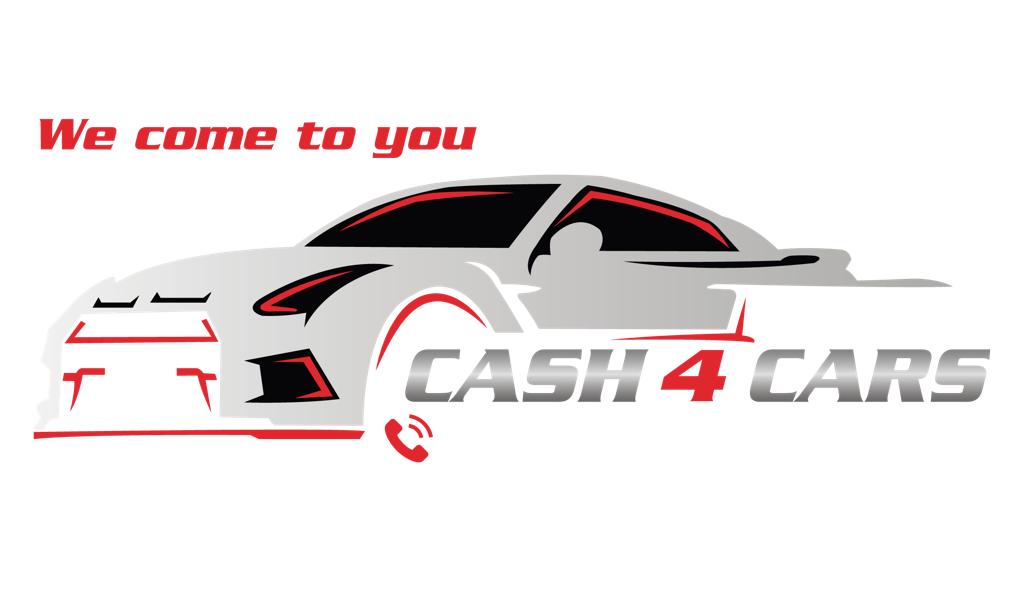How To Value A Car
Appraising a car can be complicated as many things must be considered. To figure out the value of a car, we need to evaluate its condition and current market value. We also consider its age, history, and any modifications.
If you want to make well-informed decisions about buying or selling a car, it’s crucial to know how to accurately and reliably value it. That’s where this article comes in – it’ll give you valuable insight into the right approach for determining a car’s worth.
When determining a car’s actual value, the physical condition of the vehicle is the most critical factor to assess. A car’s value is greatly influenced by its external appearance. Things like paint quality, Rust damage, dents, and scratches can make a big difference.
Also, think about things like the car’s upholstery, electronic dashboard, how well the engine runs, and how many miles it has on it. By carefully examining each aspect of the automobile with precision and detail, it is possible to arrive at an accurate valuation.
Assessing Market Value
To determine a car’s market value, researching comparable vehicles is essential. Factors such as make, model, year, features, condition, wear and tear, original paint job, and mileage must be considered. Recent sales of similar cars can also provide insight into current market trends and price points.
Analyzing all of these factors can provide a comprehensive understanding of the car’s market value.
Evaluating Comparable Vehicles
Determining the market value of a used car is an important step when considering a sale or trade-in. To know how much a car is worth, you can either check free appraisal websites or ask for our help at Car & Motorcycle Wreckers. These sites calculate the value of your item by using the provided make and model.
These services help car owners by providing market trends, pricing, and comparisons to similar vehicles for sale in their area.
To get a better idea of the current market value of a used car, it’s best to consult with professional automotive appraisers who have access to detailed service records for that particular make and model. Using this data, auto appraisers can provide precise valuations for condition, features, and mileage.
Vehicle appraisals need documentation of modifications and proof of wear and tear assessment.
Car owners can research the local market and industry experts to learn how much their used car is worth and benefit from this information. With this knowledge at hand, individuals will be better prepared to make informed decisions regarding the sale or trade-in process.
Evaluating Car Condition
When assessing a used car’s condition, it’s crucial to take into account both its interior and exterior features. Get a thorough inspection to find any maintenance or repairs you need to do before trading in your car to get the best value.
When planning to sell or trade-in your vehicle, it’s essential to consider all the factors that could affect its current market value. The distance it has travelled, and any previous damages are among the key factors that can impact its worth. Therefore, it’s crucial to take these elements into consideration while deciding on a reasonable asking price.
Free car values give an idea of the average price for cars with similar make and model, taking into account factors like mileage and age. This information can help during talks with potential buyers.
Knowing the condition of your car can help you determine its value and get the best return on your investment while reducing costs.
Key Factors That Affect Car Value
There are several key factors that can have an impact on the value of a car. When assessing the worth of a vehicle, there are several pivotal factors to consider. Specifically, age and mileage are chief among them, with cars that are older and have higher mileage usually being less valuable.
The car’s condition matters a lot. Cars that are well-maintained are worth more than those that aren’t taken care of.
Factors like market demand, location, brand, service records, accidents, maintenance, repairs, Rust, and modifications can affect the price of a vehicle. Moreover, the car’s worth can also be affected by factors such as its colour and the number of previous owners it had.
All of these factors should be considered when evaluating a car’s value.
Vehicle Age
One of the major factors that can affect a car’s value is its age. The age of a car greatly affects its market value, regardless of its make, model, or year. It is important to know that cars with fewer miles are worth more than those with higher mileage; this is especially true for newer models.
Mileage should always be considered when assessing a car’s overall condition and market value.
You can use a free car valuation calculator to get an estimate of your vehicle’s value. It takes into account market trends, age, and condition. The brand and age of a car are important factors in deciding its value. Some brands are more popular and reliable, which makes them hold their resale value better in the market.
To find out how much you should sell a used car for, take into account its age, mileage, model, and year of valuation.
Vehicle Mileage
Mileage is important for evaluating a car’s worth. A car that has been driven less than 10,000 kilometers typically has a higher value than one with more mileage.
Properly maintaining a car can help it maintain its resale value, even with high mileage.
To know how much your car is worth for a trade-in or sale, you can use a car valuation calculator online. O contact Car & Motorcycle Wreckers to get a free quote for the current market value of your car depending on its age and condition. Best of all, it’s free!
Vehicle Condition
The condition of a vehicle plays a crucial role in determining its resale value. An in-person inspection of the car’s mechanical parts will provide insight into how well it has been maintained and can help avoid any unexpected government charges or repairs needed before the sale.
A quality appraisal will also consider features such as rust, dents, paint damage, interior wear, etc., which can affect depreciation value over time. For potential buyers to make informed decisions when considering a purchase, assessing the vehicle’s current condition is essential. It must be done with accuracy and detail.
Car Value Estimation
To accurately determine a car’s worth, it’s crucial to conduct thorough research on the current market trends and prices of comparable vehicles. You can get helpful information by checking what comparable cars are being sold for, so you can make an informed guess.
To determine its value accurately, it’s important to thoroughly examine the vehicle’s condition and take note of any factors that could affect it.
It’s important to check the vehicle’s history for past accidents, ownership, or other events that could impact its worth. Knowing the car’s fair market value is a key element in the estimation process.
To ensure an accurate estimated value aligned with the current market, an appraiser should consider and utilize all available information. The final value estimate should be based on the comparable, condition, and history of the vehicle.
Market Research
When estimating the car’s value, researching the market is essential. This can involve studying new car prices and comparing them to similar second-hand cars. To determine your car’s value, begin by using a car appraisal tool. It will assess your car’s make, model, year, condition, and features.
Additionally, it can be helpful to use a car value guide to compare various models over different years or to check current trends in the used car market and see what other sellers are asking for their vehicles.
Giving these details will let buyers know the true market value of your car and assist you in setting a reasonable price. With this information, you’ll be well-armed when setting a fair sale price for your vehicle.
Condition Assessment
When estimating a car’s value, examining the vehicle’s condition is as important as researching current market prices. Wear and tear on the vehicle can significantly lower its value, so it’s essential to understand what factors may impact its worth fully.
This involves checking for any visible damage like scratches or dents, making sure that all parts are functioning properly, inspecting the interior features such as upholstery or trim, and verifying that the service records are up-to-date.
All these details should be taken into account when you’re determining your used car’s value. A car valuation tool may also help indicate the worth of your second-hand car based on its make, model, year, and other characteristics.
Buyers benefit from this information to gain insight into true market value before setting a fair sale price for their vehicle.
Analyzing Vehicle History
To accurately estimate a car’s value, it’s important to know its history and relevant details. Analyzing private sale records can help indicate what buyers will pay for that model.
You can gain valuable knowledge about the present state of the market by checking both trade-in values and market trends.
If you’re looking to buy a car, it’s important to make sure that you’re not overpaying. One great way to do this is by using a car valuation tool. This tool considers the car’s make, year, and CTP (Compulsory Third Party) insurance, as well as other significant features, to decide if the requested price is justifiable.
By using a car valuation tool, you can feel confident that you’re getting a good deal on your new wheels.
Depending on these factors, the price may need to be adjusted accordingly when putting a fair value on your second-hand car. It is important to consider all aspects before deciding how much your used car is worth.
Comparing Similar Cars
Mileage is an important factor when comparing similar cars, as it reflects the car’s overall usage and can affect the condition of the car. Age is also a significant factor, as many newer models have safety features not available in older models.
Pricing should also be considered, as different brands and models can vary greatly in cost. Lastly, the car’s condition should be assessed, as it will affect the vehicle’s overall value.
Considering Mileage
When comparing similar cars, the mileage of each vehicle is a key factor to consider. High mileage can significantly decrease the value of your car. It should be considered when estimating any given vehicle’s value.
Mileage readings for vehicles will vary depending on make, model, year, and other factors such as condition. To get an accurate car valuation, it is important to understand how many miles have been driven on a particular car since its last service or if there are any major mechanical issues that may affect its performance over time.
The buyer needs to discern whether they are willing to pay for the additional wear and tear associated with high mileage in order to own a used car. It is also essential to compare prices between similar models with low and high mileage to assess which option provides better overall value.
Factoring in Age
When comparing similar cars, age is another key factor to consider. Although newer models may have advanced technology and more efficient fuel consumption rates than older ones, the depreciation rate of a car can be much higher for newer cars than their older counterparts.
This means that despite being only a few model years old, the worth of your car in Melbourne can still be significantly lower than when you bought it.
However, depending on its condition and other factors such as mileage, an older car with fewer miles driven could provide greater value.
Trade-In Value Vs. Market Value
Trade-In Value refers to the amount a consumer can expect to receive when trading in a car to a dealership or private seller, while Market Value is the price a consumer can expect to pay when purchasing from a dealership or private seller.
The pricing differences between Trade-In Value and Market Value are due to factors like condition, mileage, age, make, and model of the vehicle.
Trade-In Value is typically lower because it does not account for the dealer’s overhead and profit margins. Market Value is determined by supply, demand, and external factors such as current economic conditions. Automotive appraisers consider all of these factors when determining a vehicle’s Trade-In Value and Market Value.
Understanding Trade-In Value
When determining your car’s value, there are two key factors to consider: trade-in value and market value. Trade-in value is determined by what a dealership will offer you based on the condition of your vehicle. In contrast, the market value represents how much someone would pay for your car today. It is important to note that these two values may differ significantly.
The price of your car at trade-in will be lower than if you sold it privately due to certain costs associated with insuring and transferring ownership of the vehicle.
For example, dealerships often have overhead expenses such as marketing fees or reconditioning costs, which can add up quickly and reduce the amount they can offer for a car. As such, a seller looking for a higher price should look into other options like selling their car online or through an auction service where those extra fees do not apply.
In any case, when considering either option, it is wise to research current market trends to determine the estimated trade-in and potential sale prices of similar vehicles before deciding how best to value your car. This will help ensure you receive a fair rate regardless of whether you sell your car directly or take its trade-in value at a dealership.
Understanding Market Value
When determining a car’s value in Australia, market value is an important metric to consider. Considering its condition and features, this represents how much someone would pay for your car today. Popular tools such as ‘Redbook’ or ‘Glass’s Guide’ market Value can be determined, which provide current price data on new or used vehicles.
It is also worth noting that certain factors, such as location and supply & demand, can affect the overall market value of a car, meaning those who want to sell their vehicle could potentially receive more than the estimated market value when all things are taken into account.
Therefore, researching current trends at both a local and national level is essential if one wishes to maximize the sale price of their vehicle.
Key Pricing Factors
When assessing a car’s value in Australia, there are two significant metrics to consider: trade-in value and market value. Both metrics reflect different factors that influence the overall worth of a vehicle; however, understanding which pricing factors come into play can help one make an informed decision when deciding whether to buy or sell a car. One primary factor that influences pricing is how well cars hold their value over time.
Vehicles with higher-quality components retain more original value than those made from cheaper materials. In addition, certain models may be in high demand due to recent trends within the industry; therefore, they will likely have a greater resale value than less popular vehicles.
Furthermore, insurance coverage plays an important role. Some carriers offer discounts for cars with added factory and aftermarket options such as anti-theft devices or alarm systems.
Suppose you’re buying or selling your car. In that case, considering these various factors can significantly affect how much money you receive upon deciding to sell. Therefore, researching current local and national trends can help you achieve a higher return on investment when it comes time to part ways with your beloved ride.
Free Car Valuation Tools
When it comes to valuing a car, there are several options available. One of the most popular is using free online valuation tools. These can provide an estimate of what your car may be worth based on the vehicle’s make, model, and mileage. This information can then be compared with similar cars currently for sale to understand their value accurately.
It is important to remember that these estimates do not consider any compulsory third-party insurance or stamp duty related to buying or selling the vehicle in question.
Therefore, if you’re buying or selling a car, it is always best to consult an independent valuer who will consider all relevant factors before providing an informed opinion about its market price.
Conclusion
In conclusion, determining the market value of a car requires careful consideration of various factors, including its age, condition, make, and model, as well as any modifications or upgrades that have been made.
Additionally, trade-in values can differ significantly from market values, so it is essential to research comparable cars before deciding on your car’s worth.
Numerous free online tools are available to assist in estimating the value of your vehicle. With careful consideration and thorough research, you should be able to understand your car’s worth accurately, enabling you to make informed decisions when buying or selling a vehicle.
Frequently Asked Questions
/







